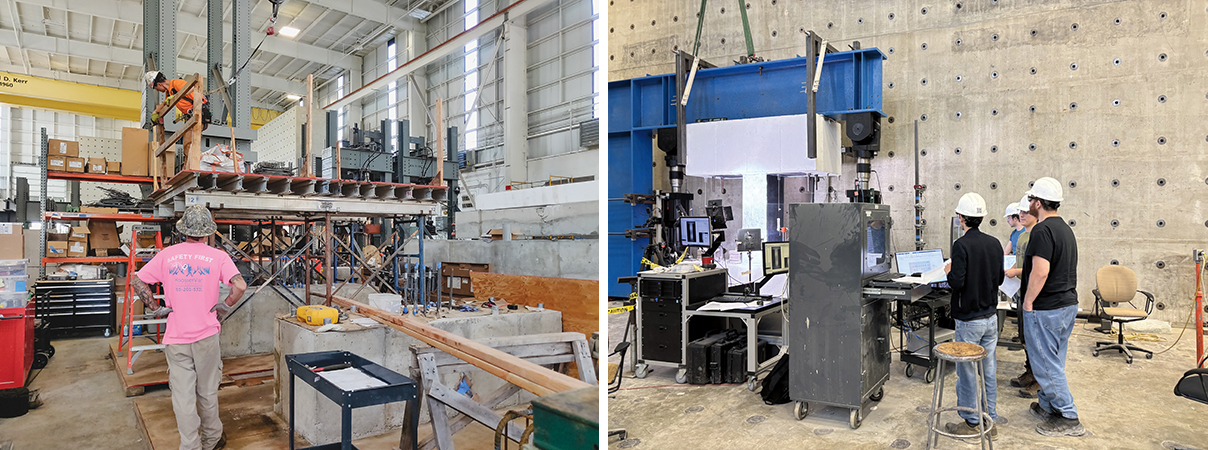Retrofit Revolution
Pioneering community-centered seismic research to protect vulnerable buildings — and the people who rely on them
As cities face the growing threat of earthquakes, researchers like Edwin Patiño (MSCE ’22) are at the forefront of innovative solutions aimed at building safer structures and retrofitting those that do not meet current building code standards.
Patiño, a graduate student researcher, studies the seismic performance of concrete columns in non-ductile buildings, analyzing historical data for structural weaknesses and testing reinforced concrete specimens. He creates detailed simulation models to understand the behavior of these columns in the context of entire building systems.
“It is critical to involve all stakeholders — government officials, insurance companies and residents — to improve earthquake preparedness,” Patiño said. “By integrating diverse perspectives, our project aims to identify buildings needing retrofitting and inform policies that enhance community safety.”


This research focuses on human-centric seismic risk management by engaging with community members to understand their perceptions of risk, particularly the importance of keeping hospitals and grocery stores operational during earthquakes. Through surveys, interviews and workshops, Patiño’s team collects insights that inform safety strategies, ultimately creating a dynamic tool that combines experimental findings with community input to guide policymakers in building safety enhancements.
This research examines retrofitting non-ductile reinforced concrete buildings in marginalized neighborhoods of Los Angeles. The structural studies are led by Patiño, and the team also collaborates with industrial engineering and economics partners to analyze community data on perceptions and vulnerabilities, and their management. The project aims to predict societal effects of retrofitting by considering structural, social, and economic factors such as community safety and access to services. It also addresses issues like temporary displacement. A Decision Support System (DSS) is being developed to help policymakers visualize retrofit trade-offs aligned with community priorities and budgets.
"Edwin's research requires that he advance the testing method known as hybrid simulation to control multiple actuators using mixed-mode control methods," said Shirley Dyke, the Donald A. and Patricia A. Coates Professor of Innovation in Mechanical Engineering, professor of civil and construction engineering and director of Purdue's Intelligent Infrastructure Systems Laboratory. "To accomplish this large-scale test, Edwin has developed new methods that extend the range of what is possible using such testing methods — thus enabling a new generation of experiments."
